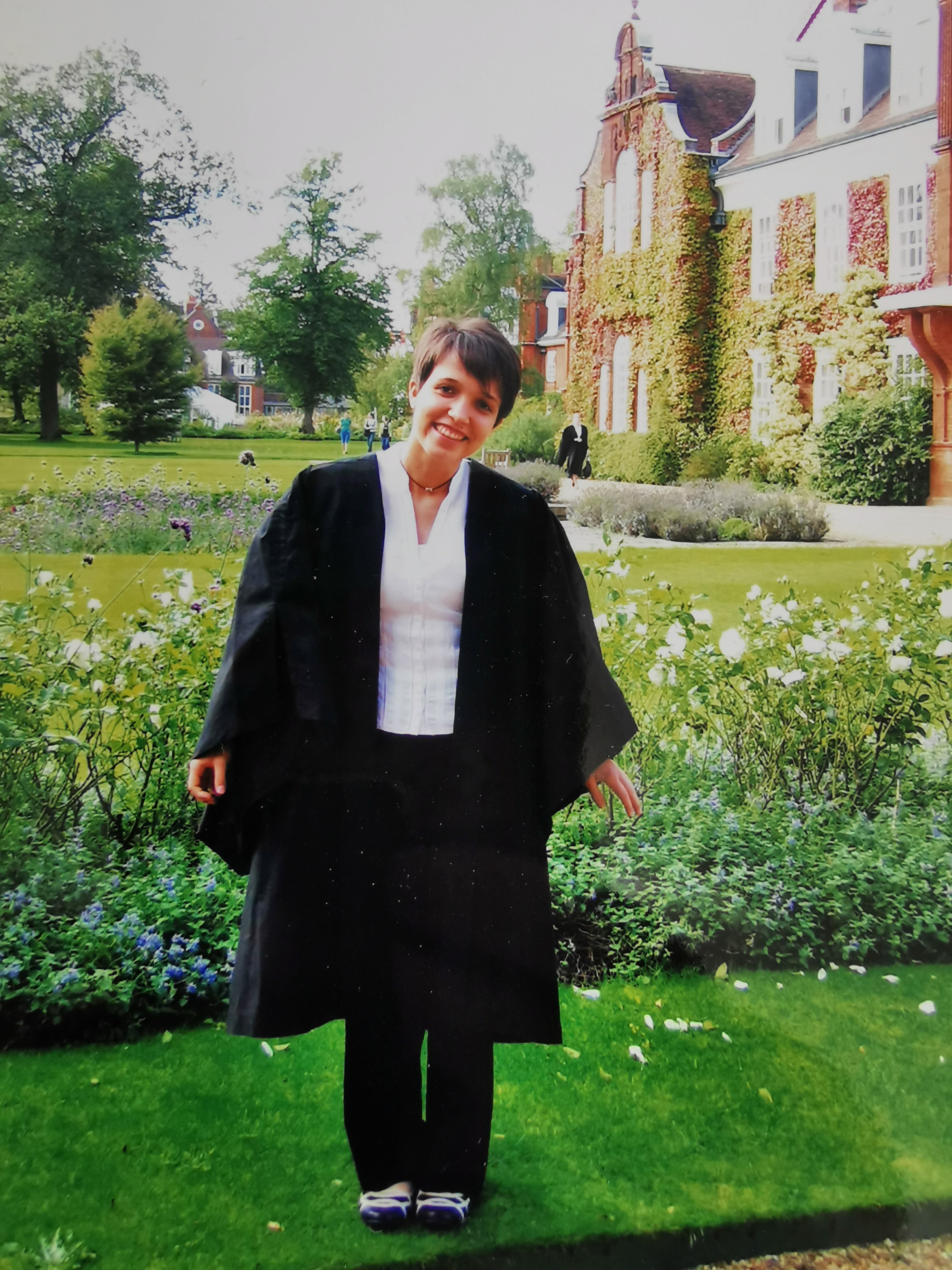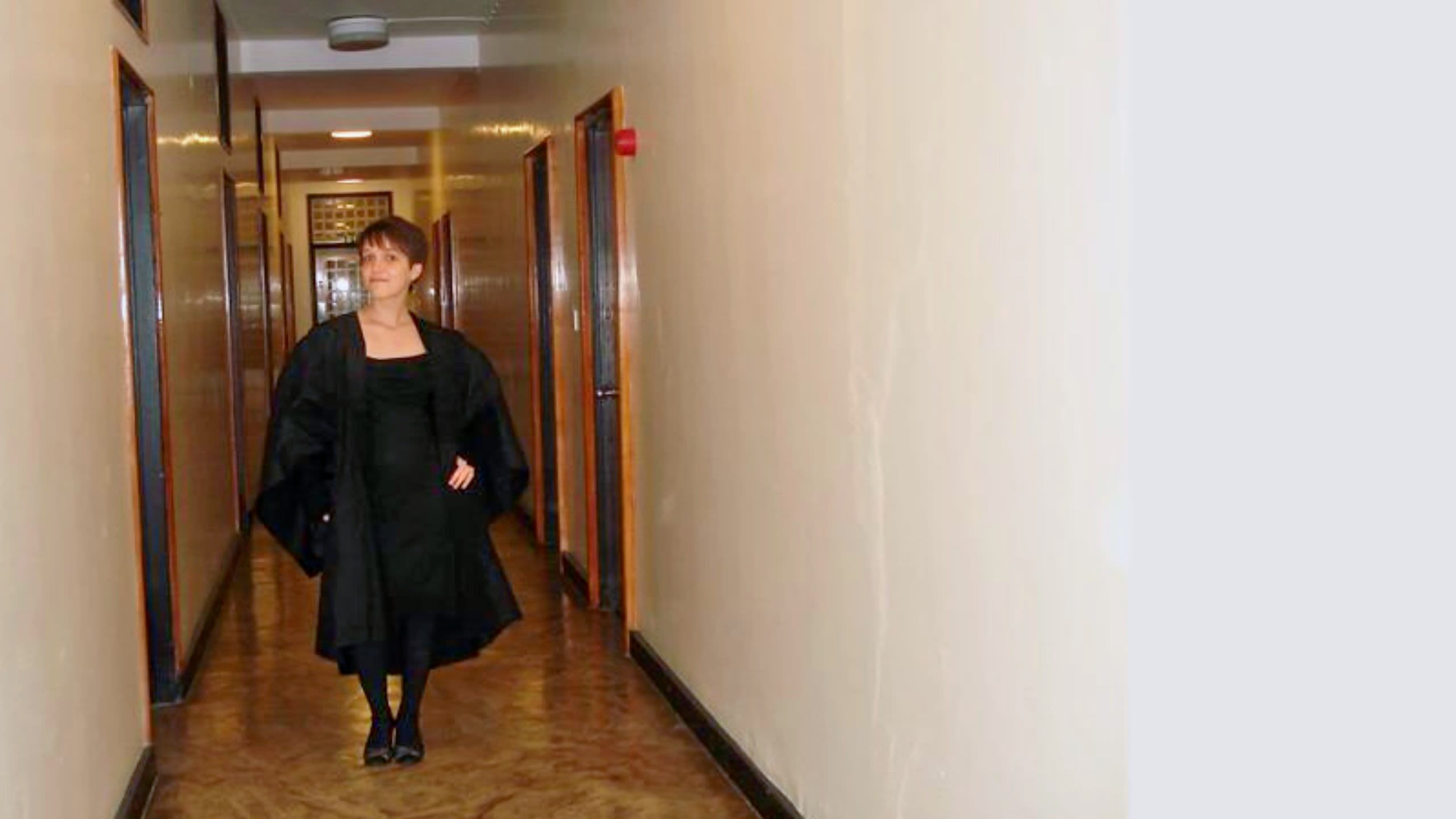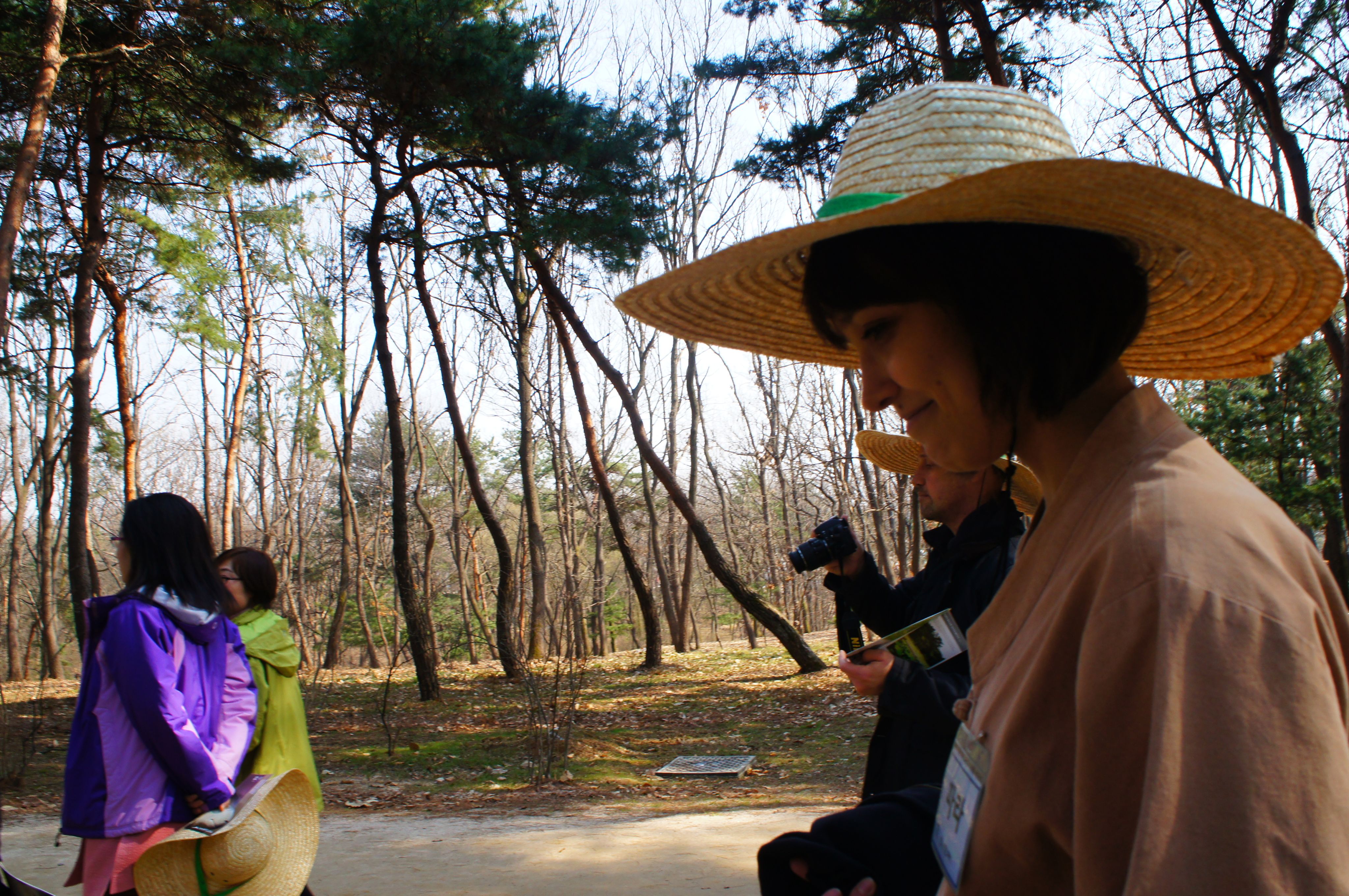Passion, perseverance, and the ‘new normal’
How alumna Farah Al-Naimi is blazing trails in engineering

Farah Al-Naimi (Newnham 2006) has had a passion for engineering since her childhood in Iraq and has worked to normalise women’s presence in the field.
From a young age, Farah knew the importance of striving for goals: "Back home, I was always that person, encouraging friends to never give up." She applies this mindset to women in engineering, believing firmly that "if you normalise it, it’s a much better approach".
Upheaval, resilience, and early inspiration
Farah was never a stranger to challenges. Born in Baghdad during a time of war, Farah earned a place at one of Iraq’s top schools. However, at the age of 17, a crucial time for her studies, she and her family relocated to the UK. "I left Iraq because of the most recent war, and I did 'live' it: I only left after the bombing stopped."
Farah persevered with her studies. She was top of her class in Iraq, and she brought this determination with her to the UK. Despite her school’s initial doubts about Farah lacking GCSEs, she excelled in her A-level exams.
Farah’s family played a huge part in her motivation to study engineering: both her dad and one of her brothers emboldened her to explore the topic at a young age. "My dad was an engineer and said engineering opens doors to quite a few areas." Her dad and brother "explained things in a way that helped me learn just by watching and listening."
Farah’s mum also helped her to navigate the UCAS application process. "They were all encouraging; they knew what I was aiming for since primary school."
Farah at her graduation
Farah at her graduation
A home in Cambridge
Farah fell in love with Cambridge upon arrival: "I’ve always loved libraries and close-knit communities, and Cambridge felt much more like the schools I went to in Baghdad." She immediately felt welcomed by Newnham College. "Back in Baghdad, I spent 10 years as a class rep standing up for girls’ rights, so being part of a College that celebrates and empowers women felt like the perfect fit."
Farah’s most memorable experience was her matriculation. "The marquee was full of chandeliers, and the dinner was candlelit and beautiful. It was the first formal dinner I’d had in Cambridge." She recalls, "There was such a strong sense of joy in the air. I felt incredibly lucky to be part of it."

Psychological barriers and reframing assumptions
Farah sees the biggest barrier for women in engineering as how the field is perceived. "If you look up what engineering means in a dictionary versus how people perceive it, they are very different". She argues that the perception in the UK is that engineers are more physical, rather than theoretical. Contrastingly, in Iraq, the term encompassed a broader range of activities, meaning that engineering was more valued and potentially more accessible to women.
For example, in Iraq, Farah’s sister-in-law was an engineering architect, which would be seen as an arts subject in the UK. Seeing a female relative pursue engineering further inspired her to explore the field.
Farah noted that Cambridge shares this broader view of engineering: "Only having to specialise in my third year offered me the chance to explore quite a bit."
Equally, Farah emphasises the importance of integrating a female presence in engineering. In her first lecture, the lecturer pointed out that a third of the hall were women, which was the largest number they had seen. Although the lecturer meant to highlight progress, it suggested to Farah that women’s presence was unusual. Her argument is, "Stop emphasising it and just normalise it."
Celebrating difference internationally

Soon after graduating from Cambridge, Farah joined a scholarship programme run by Samsung Electronics. "It was a global initiative that selected two engineers from each major continent to study and work in South Korea."
Farah noticed that in South Korea, there were few women in the engineering scene. "I had one female engineering friend throughout my stay in Korea; it was super male-dominated."
But this did not stop her; in fact, it motivated her more. "I thought, yeah, this could be a disadvantage. But you know what, it could even be an advantage." She owned her difference: "I look different; I am different."
As part of a team of two, won Samsung’s internal Creative Lab competition. She helped to develop a prototype and organised a marketing event at Samsung, who later picked up the project for the Research and Development Department.
Farah reflected that her success was also thanks to the encouragement of her partner, who relocated with her to live in South Korea. The continued support of those close to her has helped her to pursue her passion.
Returning to Cambridge, Farah began work at Cambridge Mechatronics, developing optical image stabilisation for mobile phones. Her role involved frequent travel to Asia, especially China. She was instrumental in winning the company’s first purchase order and, over time, was promoted to Director of Applications and Delivery.
But Farah’s first encounter in China was less than ideal. "The first meeting I had with a client, they thought I worked in marketing, and they didn’t even give me a business card." But this did not deter her: "With time, as I debugged more problems for them, I got their respect naturally."
Farah visiting a temple in Korea
Farah visiting a temple in Korea
Farah with the Cambridge Mechatronics team
Farah with the Cambridge Mechatronics team
“Just do your thing. Have fun.”
Farah drumming in Tokyo
Farah drumming in Tokyo
Farah’s advice for women considering a career in engineering is simple: don’t let anything hold you back. "Don’t let stereotypes or barriers, whatever form they may take, prevent you from doing what you love most." She advises women in engineering to persevere through adversity. "If you give up in the first instance, or you have a negative reaction to it, you are almost confirming the prejudice."
Farah worked at Cambridge Mechatronics for 10 years. "I’m now ready for a new challenge, one where I can combine my technical experience with more commercial exposure."
From childhood and throughout her career, Farah has defied expectations and pursued her passion. She encourages other women to discover the world of engineering and appreciates Cambridge’s role in fostering her love for the subject.




